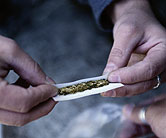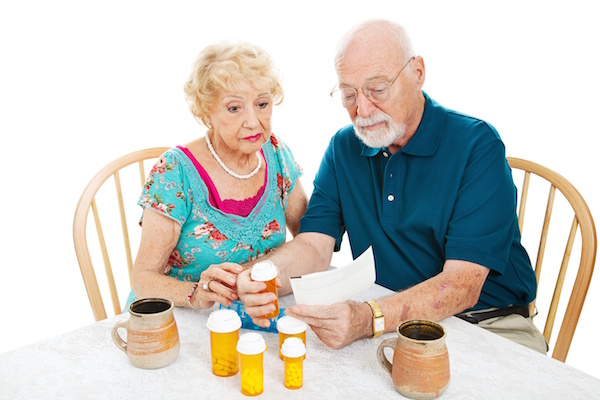
FRIDAY, Dec. 18 (HealthDay News) — The genes that make people susceptible to alcoholism also make them prone to becoming addicted to marijuana, a new study suggests.
Researchers interviewed almost 6,300 men and women aged 24 to 36, including almost 2,800 sets of twins who were part of the Australian Twin Registry, about their use of alcohol and marijuana over their lifetime.
Twins are valuable to researchers in determining the role of genetics in various diseases or conditions because identical twins share 100 percent of their genes, while fraternal twins share 50 percent of their genes, the same as other siblings.
About 60 percent of the likelihood of becoming a heavy drinker, a frequent marijuana user or of becoming dependent on marijuana can be attributed to genes, according to the study, while about half of the likelihood of being an alcoholic can be traced to genetics.
“We know there is a high likelihood of alcohol addiction-related problems among people who smoke marijuana heavily and vice versa,” said study author Carolyn E. Sartor, a research instructor at Washington University School of Medicine in St. Louis. “What we found is that some of the same genetic influences that impact alcohol use and dependent symptoms also impact marijuana use and dependent symptoms.”
Still, that means between 40 percent and 50 percent of the cause of alcohol or marijuana dependence may be due to environmental influences. Despite a genetic tendency, no one is predestined to abuse either substance, Sartor noted.
And even though a common set of genes appear to influence marijuana and alcohol addiction, there are also likely specific genes that influence addiction susceptibility to individual substances, Sartor added.
The study will be published in the upcoming March issue of Alcoholism: Clinical & Experimental Research.
Marijuana is the most commonly used illegal drug, according to the study, citing a 2008 survey that found about 42 percent of high school seniors reported having tried marijuana. About 5 percent said they had used it daily during the previous month.
Though generally believed to be less addictive than nicotine in tobacco products, about 12 percent of marijuana users meet the criteria for dependency, according to the study. Symptoms of marijuana or alcohol dependency include using more heavily or more frequently than intended, giving up important activities to smoke or drink and building a tolerance or needing to use more to get the same effect.
Marijuana’s active ingredient, THC, acts on the brain’s cannabinoid system, which is involved in learning, memory, appetite and pain perception, explained Dr. Christian Hopfer, an associate professor at the University of Colorado School of Medicine. Medical uses for marijuana including alleviating pain and boosting appetite in people with cancer and other serious illnesses.
But marijuana has its downsides. Other research has shown marijuana use increases the risk of developing mental illnesses, Hopfer added.
Far less research has been done about marijuana than on tobacco or alcohol products, Hopfer said. That needs to change. Not only is marijuana use widespread, but THC levels in pot have increased in recent years, making the drug’s effects more potent.
“We are quasi-legalizing it due to medical marijuana, yet we really don’t know that much about it except a lot of people are self-administering it,” Hopfer said. “Marijuana addiction is a subtler addition than with some other drugs, but it can be a big focus of their life and interfere with their functioning.”
In the past, researchers have often studied the addictive properties of drugs such as tobacco, cocaine, marijuana, heroin and alcohol separately, Hopfer said. But studies such as this suggest there can be similar genes underlying a propensity toward many types of substance abuse.
“There is a lot of evidence that if you have trouble with one substance you will have trouble with others,” Hopfer said. “Twin data shows that the genetic effects may be across substances.”
While there are legal drugs available to help treat nicotine and alcohol addiction, there are no drugs to treat marijuana addiction. For marijuana dependency, behavioral modification, family therapy, cognitive behavioral therapy and 12-step programs are among the programs that may help, Hopfer said.
More information
There’s more on marijuana addiction at the U.S. National Institute on Drug Abuse.

